Sundarbans, 22 September 2019: Sixty women from three islands in this unique ecosystem managed to release 92,000 prawn associated fauna back into the estuarine environment. Species of fishes, squids, snails, crabs snakes etc. that would have otherwise perished as bycatch were safely put back into the waters thanks to a simple solution of providing each collector with an aluminium container to help segregate the tiger prawn seeds from the associated macro fauna at the source.
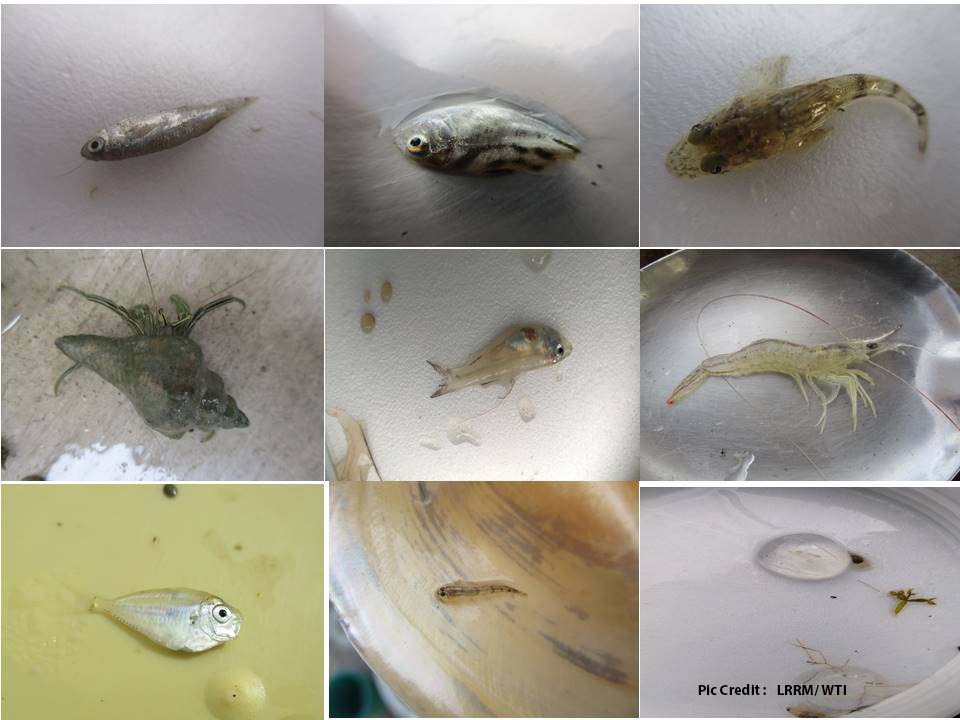
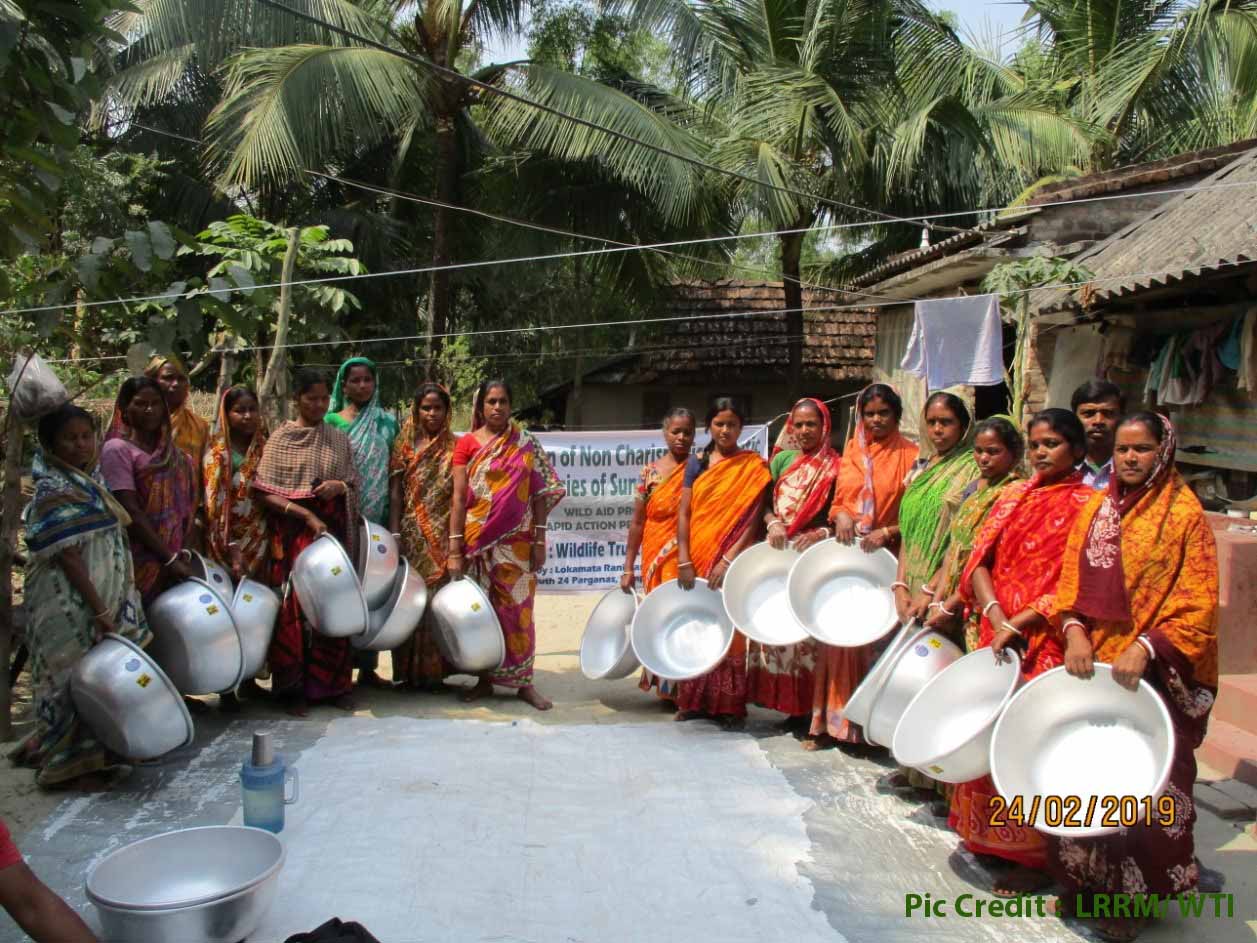
Sundarbans mangrove forests are known as the largest and one of its kind estuarine environments that also house some of the most marginalised communities in the state of West Bengal. Even when working as wood-cutters, honey leaves and grass gatherers, fishing is the mainstay and an important livelihood option for most of the locals. Collection of fish seeds and adults especially of Tiger Prawns (Panaeus monodon) locally known as bagda, is one of the most sought after activities of the fisher folk.
Excessive usage of drag nets and fine-meshed bag nets and the practice of dumping the by catch as discarded waste on land, after collecting their needs has greatly impacted the natural ecosystem. This activity is dominated by the women workforce and on an average, women spend close to five hours in chest-deep waters, risking crocodile attacks, for a sufficient catch.
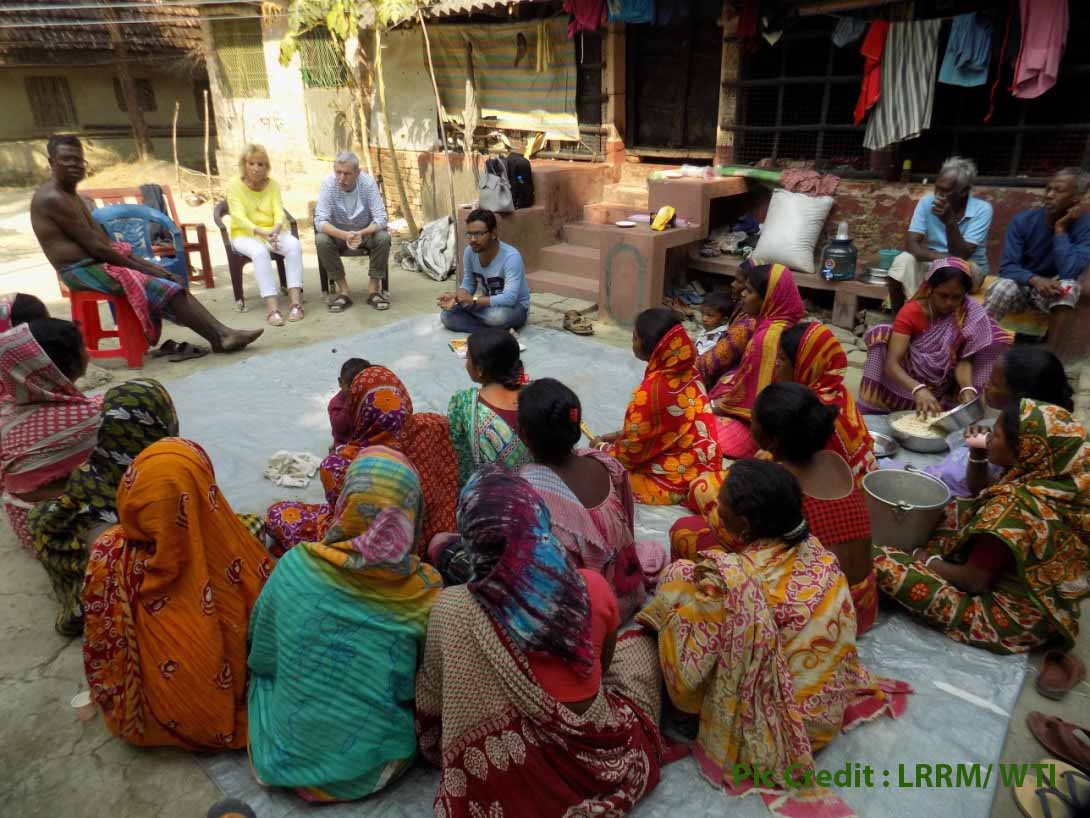
WTI’s Rapid Action Project (RAP) worked with Lokamata Rani Rashmoni Mission (LRRM), a local organisation engaged with the fishing community by conducting a series of consultative meetings in three islands Gosaba, Satjelia and Bali to motivate the prawn collectors to release the bycatch back into the waters.
A cost-effective and straightforward approach was implemented to stop them from throwing away the bycatch. “Sixty prawn collectors from Bali, Pakhirala and Satjelia, were provided with aluminium buckets to help pick out the tiger prawn seeds and collect the associated macro fauna separately. Once segregated at the point of collection, the seed collectors released the other small marine fauna back into the waters, in a bid to replenish the ecosystem”, explained Debobroto Sircar, the Officer in charge of WTI’s Rapid Action Projects.
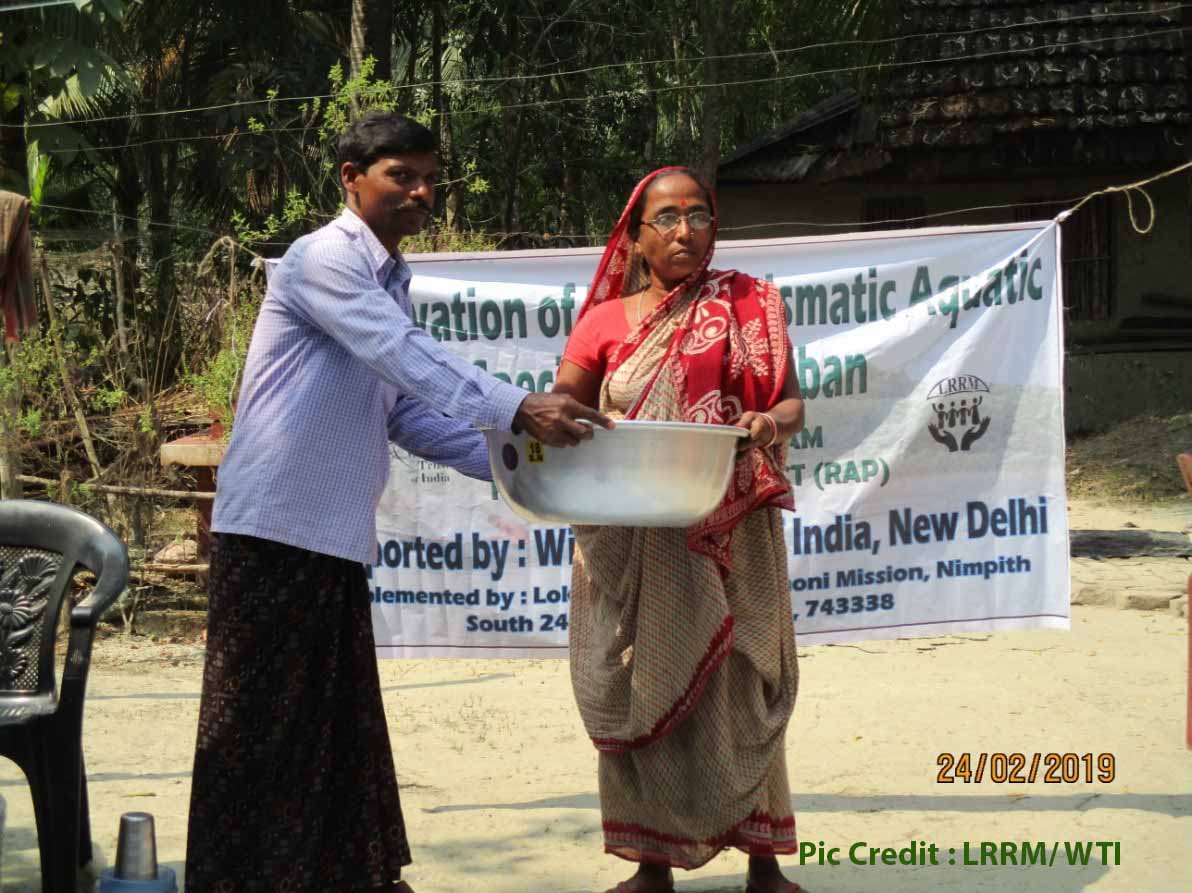
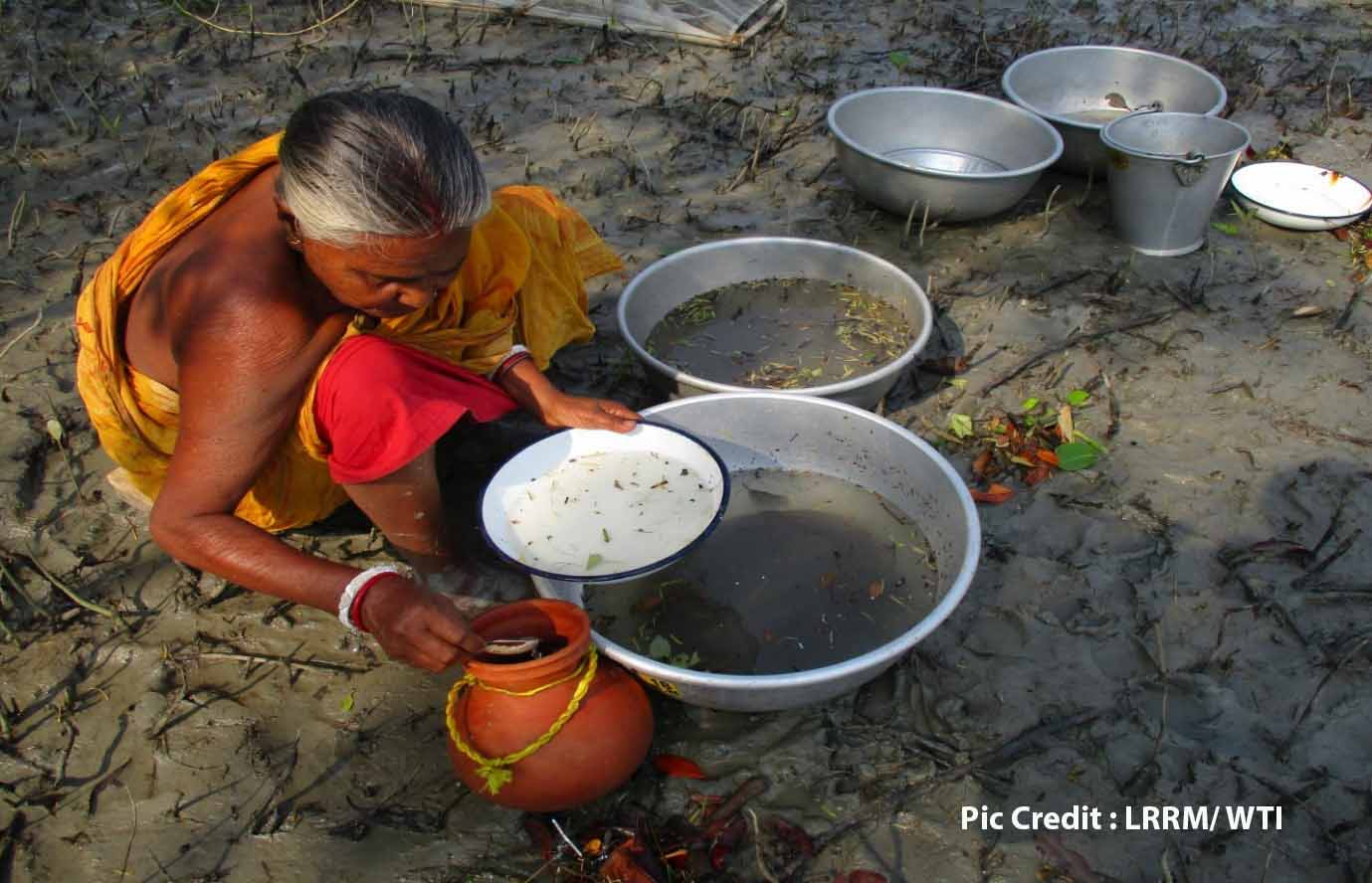
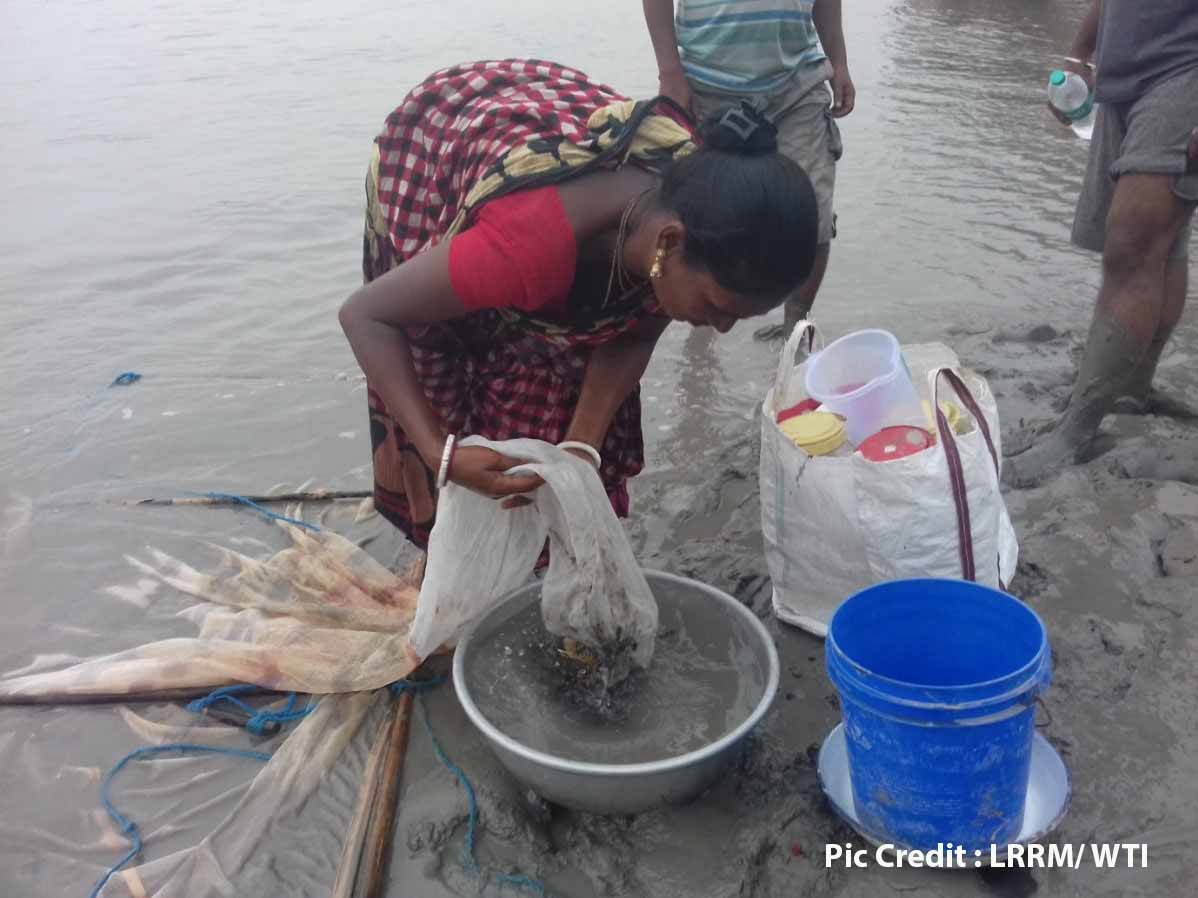
The team has been monitoring the seed collectors to ensure the release of bycatch and collecting data on the number of associated fauna per tiger prawn seed they obtain. At least 30 other macro fauna are caught for every tiger prawn collected, thus amounting to approx. 92,000 macro fauna released in eight months of implementing the project.
The Secretary of LRRM, Mr. Amitava Roy shared, “This has been a first of a kind initiative supporting the women in their traditional occupation. see a behavioural change in the attitude in the seed collectors, and they have started observing the number of other fauna in their catch and voluntarily release them back into the waters. The news has spread to other islands, and many seed collectors have started approaching us asking for similar support which is a good sign.” Each fisherwoman also got a goat as an incentive for their participation in conservation, that also elevated their social status in the community.
The project is still ongoing and we hope this simple initiative find more participation to help save the marine fauna in Sundarbans. Take what you need, put back what you don’t. When followed to the T, humans will manage to address some major issues of overexploitation of natural resources.
India’s wildlife is being plagued by varied, persistent and multiplying threats daily. These threats if not addressed in time, can eventually have a disastrous impact on the country’s natural heritage. Under Rapid Action Projects (RAP), Wildlife Trust of India provides short term grants and technical support to grassroots organisations, community stakeholders and government agencies to quickly resolve any wildlife conservation challenge in their landscape. To know more, please visit https://www.wti.org.in/projects/rapid-action-projects/or write to us at rap@wti.org.in
Pic Credits: LRRM/ WTI